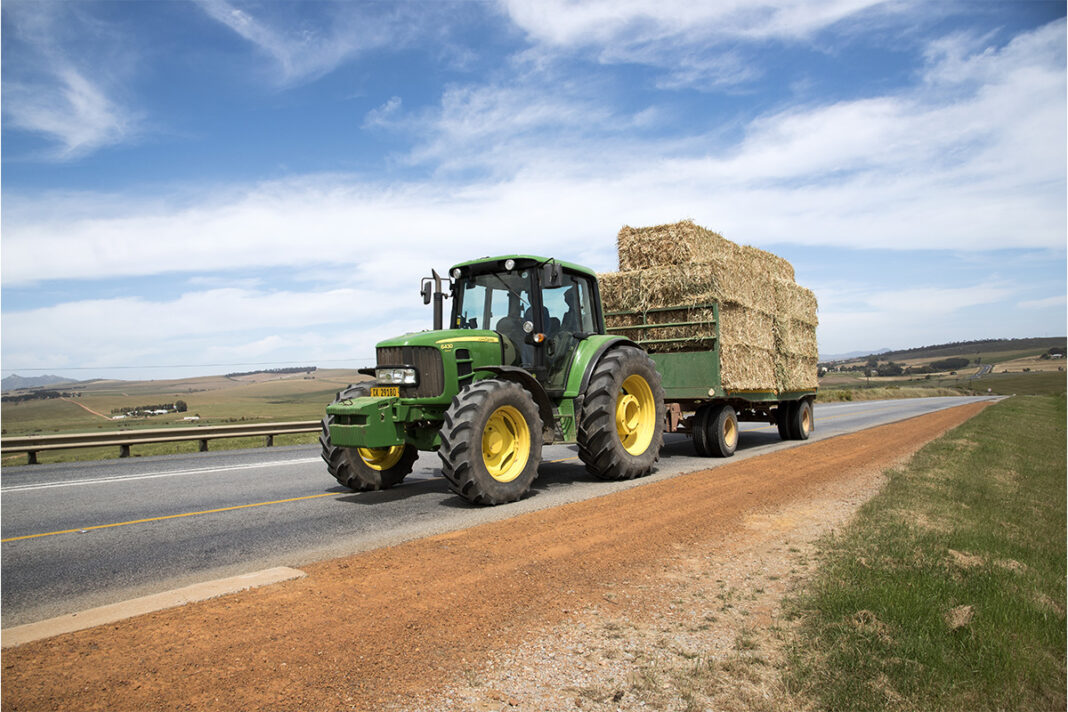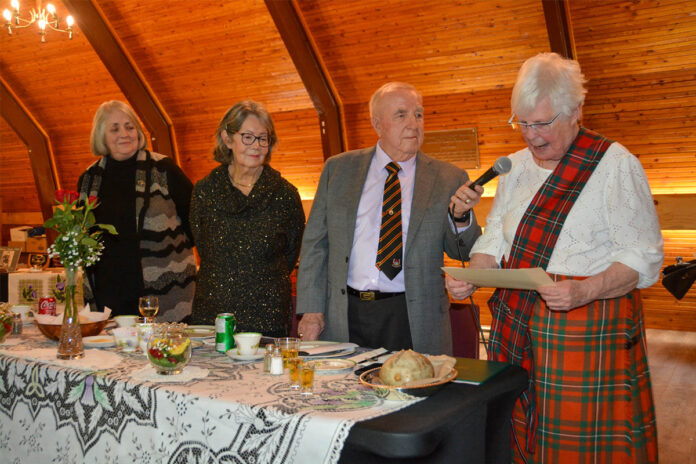CENTRAL MANITOULIN—A proposed update to a roads bylaw in Central Manitoulin quickly raised alarm in the municipality and brought two presenters to appear before a packed house, with many concerned citizens attending both online and in person.
Presentations from local businessman Wayne Legge and farmer Mike Johnston came to speak on a draft bylaw 2024-13, “Reduced Load.”
Mr. Johnston was first up on the docket. “I’m representing the local farming community in regard to the new bylaw that’s in draft mode right now for 2024-13,” he said, noting that the proposed revisions to the bylaw had drawn the attention of the farming community. “I and others agree, bylaws do need to be updated from time to time, however we do have some concerns with the way that is written and presented on the municipal website.”
Mr. Johnston noted the bylaw would put restrictions on agricultural vehicles and self-propelled husbandry vehicles used by farmers and he called for a blanket exemption for the farming community. He cited the exemptions under the Ministry of Transportation and the Highway Traffic as an example, where “our vehicles are exempt from the maximum width, length and weight rules when they are operated singularly or in combination. These exemptions also apply to trucks that are hauling other implements such as just as an example, wheat combine heads, or things like that.”
With an exemption, farmers will not have to worry about going to the fields with their equipment, he contended, pointing out that even when weather might dictate, “our equipment is not necessarily overweight,” he said, but pointed out “most of it does fall under the width rule.”
“This will contribute to significant stress and hardship on all the hard-working farming community by requiring unnecessary amounts of costs and bureaucracy,” he contended. Mr. Johnston pointed out that “some of us, myself included, are not that well versed in navigating through websites to find specific information that we need.” To that end, the farming representative suggested that physical signs be posted as well as notices on the town’s website.
Mr. Johnston went on to cite concerns about what penalties would be imposed on the unwary. “How are the penalties of enforcement going to come with an infraction?” he asked. “Will an offense be able to be appealed and if the offence stands, will that infraction be noted on a person’s driving records, such as an MTO officer can do?
Mr. Johnston went on to suggest that better consultation with stakeholders, such as farmers, should be conducted during the initial draft phase of crafting a bylaw.
“I’m going to, more or less, speak on behalf of construction workers,” said Mr. Legge. “The big thing is, is this for all the highways in the municipality and the big question is, are there certain roads and highways in the municipalities that do not fall under restricted load? So, will these permits be required on the non-restricted roads as well?”
He expressed concern that there was no clarity on maximum load or combination axles, timing of the restrictions and whether all roads would be impacted as well as would all restrictions be lifted at the same time. “Right now, it is just a pure blanket,” he said.
Mr. Legge also had questions regarding the clause referring to “hindering” the bylaw officer. “They can say we gave him a hard time, but that person may be overstepping a little bit.”
The businessman also expressed concerns about the requirement for construction companies to list the municipality on their insurance. “No insurance company is going to allow you to have the municipality added to your insurance,” he said. “Like, that is the most absurd thing that I’ve heard. If I call my insurance company and said I wanted to list Central Manitoulin added to my policy, I don’t think it’s going to go very well”
Mr. Legge also noted that when he goes to get his full truck licence each year, “I get a municipal or I get a heavy load permit and a wide load permit for all the King’s Highways. So, what is it? Like what’s the difference that you guys are restricting us on the Kings Highways in Central Manitoulin? And when it’s allowed to go in all the King’s Highways, no matter where, the way it reads in an MTO permit? The other main question that I have is, ‘Why fix something that isn’t broken?’ Like it seems like you guys are kind of wanting to pick a fight right now.”
“It’s always been that you would call up the town superintendent and have a discussion with them if you needed to put a hot load on or whatever,” he said. “And the other thing is, there’s nowhere in there for emergencies. What happens if there is an emergency and there’s a blocked culvert or something, or there’s a water main break. There’s not 48 hours to be given for permits for all that.”
Mr. Legge noted that the proposed bylaw has too many gray areas in it. “There’s a lot of things that need to be very, very clarified that is not clarified right now,” he said. “In my opinion, I think it’s a lot of stuff that isn’t necessary to be here to start with.”
In response to the concerns listed, it was pointed out that the restrictions in the draft bylaw were never aimed at the farming community and that there are several other exemptions to both municipal bylaws and the Highway Traffic Act. A number of other technical details were discussed and outlined in response, including that emergency vehicles could still respond to issues, like watermain breaks.
Following the meeting, Mayor Richard Stephens commented on the concerns being raised at the meeting. “I think we did see some miscommunication there,” he said. “Farms were exempt from the rules. I was impressed with both presenters who made their case. I was a little disappointed. We could have done better.”
Mayor Stephens said that he felt he had to take the biggest share of the blame. “All we were doing was to try and update and modernize our bylaw,” he said, noting that there will be revisions. “This will be a lengthy process.”





